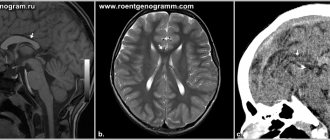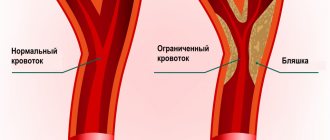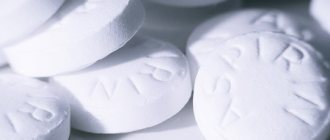Unpleasant sensations during VSD have different characteristics. A person may experience pressure surges, pain in the heart, rapid heartbeat, anxiety, difficulty breathing, increased body temperature, disturbances in the gastrointestinal tract, restless sleep with VSD, etc. One of the manifestations of VSD is tinnitus. It may also indicate the development of another disease (otitis media or cervical osteochondrosis), and therefore is subject to careful diagnosis. Information about what kind of pain during VSD worries the patient will help the doctor suspect the correct diagnosis, which is confirmed by examination.
Reliable diagnosis and high-quality treatment of VSD in Moscow is performed at the Yusupov Hospital. Extensive experience and high qualifications of doctors allow us to identify the causes of the disease and successfully eliminate it.
Tinnitus and cephalgic syndrome
When a person with VSD constantly feels unwell, he is bothered by tinnitus, heaviness in the head, headaches and dizziness, drowsiness, this may indicate cephalgic syndrome. Tinnitus with VSD usually occurs after suffering stress, overexertion, exposure to heat or cold, or a sudden change in climate. Additionally, chills may occur with VSD. What to do in such a situation? First of all, you need to contact a specialist. The therapist or family doctor will examine the patient and prescribe the required examinations. The doctor’s task is to identify the real cause of poor health and formulate adequate treatment. If necessary, the doctor prescribes a consultation with a specialist (otolaryngologist, neurologist, cardiologist, etc.). If itching occurs during VSD, you may need the help of a dermatologist. This significant involvement of specialized specialists helps to identify the underlying cause of a person’s poor health, rather than simply treating symptoms.
Cephalgic syndrome often accompanies hyperventilation syndrome with VSD. Breathing disorders occur when nervous tension and anxiety worsen. One of the most effective ways to eliminate unpleasant symptoms is relaxation. The patient needs to calm down, pull himself together, and realize that what is happening does not pose a threat to his life. The following help to reduce the manifestations of cephalgic syndrome during VSD:
- self-massage of the head;
- breathing exercises;
- a warm shower on the cervical-occipital region (with high blood pressure) or a contrast shower (with low blood pressure).
Our specialists
Tarasova Svetlana Vitalievna
Expert No. 1 in the treatment of headaches and migraines. Head of the Center for the Treatment of Pain and Multiple Sclerosis.
Somnologist.
Epileptologist. Botulinum therapist. The doctor is a neurologist of the highest category. Physiotherapist. Doctor of Medical Sciences.
Experience: 23 years.Derevianko Leonid Sergeevich
Head of the Center for Diagnostics and Treatment of Sleep Disorders.
The doctor is a neurologist of the highest category. Vertebrologist. Somnologist. Epileptologist. Botulinum therapist. Physiotherapist. Experience: 23 years.
Palagin Maxim Anatolievich
The doctor is a neurologist. Somnologist. Epileptologist. Botulinum therapist. Physiotherapist. Experience: 6 years.
Zhuravleva Nadezhda Vladimirovna
Head of the center for diagnosis and treatment of myasthenia gravis.
The doctor is a neurologist of the highest category. Physiotherapist. Experience: 16 years.
Mizonov Sergey Vladimirovich
The doctor is a neurologist. Chiropractor. Osteopath. Physiotherapist. Experience: 8 years.
Bezgina Elena Vladimirovna
The doctor is a neurologist of the highest category. Botulinum therapist. Physiotherapist. Experience: 24 years.
Drozdova Lyubov Vladimirovna
The doctor is a neurologist. Vertebroneurologist. Ozone therapist. Physiotherapist. Experience: 17 years.
Dyachenko Ksenia Vasilievna
Head of the center for the treatment of dizziness and balance disorders.
The doctor is a neurologist of the highest category.
Angioneurologist. Neurorehabilitation specialist. Physiotherapist. Candidate of Medical Sciences.
Experience: 19 years.Volkova Svetlana Anatolevna
Head of the Center for Parkinsonism and Extrapyramidal Diseases.
The doctor is a neurologist of the highest category. Epileptologist. Ozone therapist. Physiotherapist. Experience: 26 years.
Paroxysms and tinnitus with VSD
In 90% of cases, VSD manifests itself in paroxysms, that is, symptoms occur in the form of an attack. The trigger for paroxysm can be any irritant (stress, fear, change of environment, etc.) or an exacerbation of a chronic disease. The duration of an attack depends on many factors: its intensity, the general psychological state of the person, and environmental conditions. To stop an attack, in some cases it is enough to remove the irritant and create comfortable conditions for the person in which he will feel safe.
VSD with paroxysms has the following manifestations:
- ringing and noise in the ears;
- headache;
- fainting;
- blood pressure disorders;
- heartache;
- panic attack.
Noise in the ears and head, and migraine most often occur with VSD with migraine paroxysms. The condition is usually preceded by nausea and dizziness. The attack begins against a background of complete well-being and can last from several minutes to several hours.
Tremor with VSD can accompany disturbances in blood pressure, heart pain, and tachycardia. The presence of tremor is a sign of autonomic arousal. Additionally, the patient experiences severe sweating, rapid heartbeat, and redness of the face (people say “the face burns” with VSD).
A very unpleasant attack of VSD is a panic attack. A person experiences shortness of breath, suffocation, dizziness, increased heart rate, a feeling of a hopeless situation, and fear of death. Dilated pupils are noted with VSD.
This paroxysmal state is characterized by an increase in the level of adrenaline in the blood, acetylcholine and norepinephrine. An excess of these substances causes disruption of the autonomic system.
Such attacks provoke self-doubt and indecision in a person during VSD. The inability to control the paroxysmal state significantly impairs the quality of life. A person cannot attend desired events and places or perform certain types of activities due to fear of an attack. A person is constantly stressed, resulting in a “vicious circle”: stress provokes an attack, and an attack provokes stress. In some patients, depression develops against the background of paroxysmal conditions, and memory deteriorates during VSD.
Weather dependence is called the sixth sense
First, let's dispel the doubts of skeptics. Weather sensitivity is not an invention of muslin young ladies. This has been confirmed by science: in people who are sensitive to weather changes, the level of leukocytes in the blood increases on such days. And medical statistics have recorded: more than 60% of city residents over 28 years of age react to bad weather. The proportions are as follows: there are one and a half times more representatives of the fairer sex who sense the approach of an atmospheric front than the stronger sex.
Young children are distinguished by the most subtle sensitivity. Mothers of infants notice that babies begin to cackle as soon as the weather changes.
Fainting
VSD with syncope (fainting) also refers to paroxysmal manifestations. This is a neurogenic type of VSD, the main role in the development of which is played by a sharp decrease in blood pressure. Short-term loss of consciousness is more often observed in young people with increased emotional lability. Fainting occurs under the influence of a specific factor (uncomfortable environment, change in ambient temperature, etc.). An attack is usually caused by the same factor, which is individual for each patient.
Often before an attack, the patient’s ears become blocked due to VSD. Presyncope with VSD can also be accompanied by suffocation, rapid heartbeat, and dizziness. Fainting is a particularly dangerous condition because a fall can cause serious injury. Therefore, VSD with this type of attack requires careful monitoring.
Types of headaches
There are several types of headaches with VSD:
- physical stress;
- post-stress, resulting from excessive mental and physical stress; physical stress;
- morning, which is based on congestive disturbances of blood flow in the brain;
- pain caused by oxygen starvation, which appeared while being in a stuffy room.
Most often, with VSD there are 2 types of headaches - tension and migraine. Despite the fact that such a condition is always subjective, it is still possible to describe individual symptoms.
Insomnia
Insomnia and drowsiness with VSD are common clinical manifestations of nervous system dysfunction. As a result of insomnia, a person becomes irritable, lethargic, and develops chronic fatigue. Facial swelling with VSD can also be the result of insomnia.
The following are the main triggers for insomnia:
- stress;
- neurosis;
- depression;
- change of time zones;
- some medications.
Insomnia with VSD requires urgent treatment, since a prolonged lack of sleep and proper rest causes significant disruption of the functioning of the organs and systems of the body. Insomnia can cause exhaustion of the body - a serious condition that requires complex treatment.
Drugs for weather dependence
- These days, you should not skip taking medications. With your doctor's permission, you can increase the dose or take a stronger medicine.
- It is believed that weather dependence makes itself felt only when the immune system is weakened or when there is illness. Therefore, heal to the end, strengthen and boost your immune system with simple measures - a contrast shower, proper nutrition, moderate physical activity, spending time in the fresh air, proper sleep and wakefulness, and auto-training techniques.
- For some, vitamins and minerals, antioxidants, and so-called plant adaptogens (including tinctures of ginseng, eleutherococcus, lemongrass, and aralia) help on difficult days . But the last recommendation is not suitable for hypertensive patients.
- And another piece of advice - don’t focus on the weather : if you think, “This hurricane will make me feel bad,” so it will be. Remember that our body easily adapts to any climate, it is not for nothing that residents of the far north do not react so sharply to strong winds, high humidity, periods of prolonged cold, and those who live in the sultry south breathe dry air easily and do not feel high levels of radiation, accustomed to low humidity and eternal heat. By the way, paradoxically, the weather is the best immunity trainer.
If you still have questions, you can ask your therapist online in the Doctis application.
Lower back pain
The cause of back pain during VSD, in particular in the lower back, is most often osteochondrosis of the lumbar region. Degenerative-dystrophic disease of the spinal tissue disrupts the functioning of the nerve roots, which, in turn, begin to transmit incorrect signals to the peripheral nerve endings. Thus, osteochondrosis causes symptoms of VSD.
Back pain with osteochondrosis with the VSD clinic has the following manifestations:
- increased heart rate;
- numbness of the limbs;
- heartburn, nausea;
- lack of air (a cough is often associated with VSD).
Osteochondrosis can develop not only in the lumbar area, but also affect other areas of the spine: the thoracic and cervical regions. VSD and tension in the neck are a consequence of cervical osteochondrosis. Its other symptoms are headache, dizziness, memory impairment, and constant fatigue.
Manifestations of weather dependence
Patients with diseases of the bronchi and lungs, asthmatics, arthritis sufferers, and hypertensive patients can accurately predict bad weather. If the temperature outside the window and atmospheric pressure immediately decrease, they expect their condition to worsen, complaining of pain in the joints and stiffness in movement.
Cores can compete with the hydrometeorological center in the accuracy of forecasts. A couple of hours before the weather changes (and it could even be a change in the direction of the wind), they complain of headaches, weakness, anxiety, joint pain, and angina attacks. The hardest days for them are those with high air humidity and when a thunderstorm is approaching.
Heart crises, as ambulance workers note, occur at times of pronounced activity of the geomagnetic field and magnetic storms. A sick heart also reacts to periods of high sun activity.
The state of health these days deteriorates in those suffering from vegetative-vascular dysfunction (previously this disease was called vegetative-vascular dystonia), gastritis, patients with pneumonia, pyelonephritis, eczema. People with mental problems have another influencing factor - lunar tides.
In principle, any chronic responds to bad weather, doctors say.
Treatment of tinnitus with VSD in Moscow
In Moscow, VSD therapy is successfully performed at the Yusupov Hospital. Since VSD is more often a manifestation of some disorder in the physical or psychological state of a person, the pathology requires careful diagnosis. The modern equipment of the Yusupov Hospital allows for examinations of any complexity, which contributes to a quick and accurate diagnosis. Based on the examination data, the doctor (therapist, neurologist or other specialist) creates the most effective therapy that will eliminate unpleasant symptoms and cure the true cause of the pathology.
You can make an appointment with the clinic’s specialists by calling the Yusupov Hospital.









